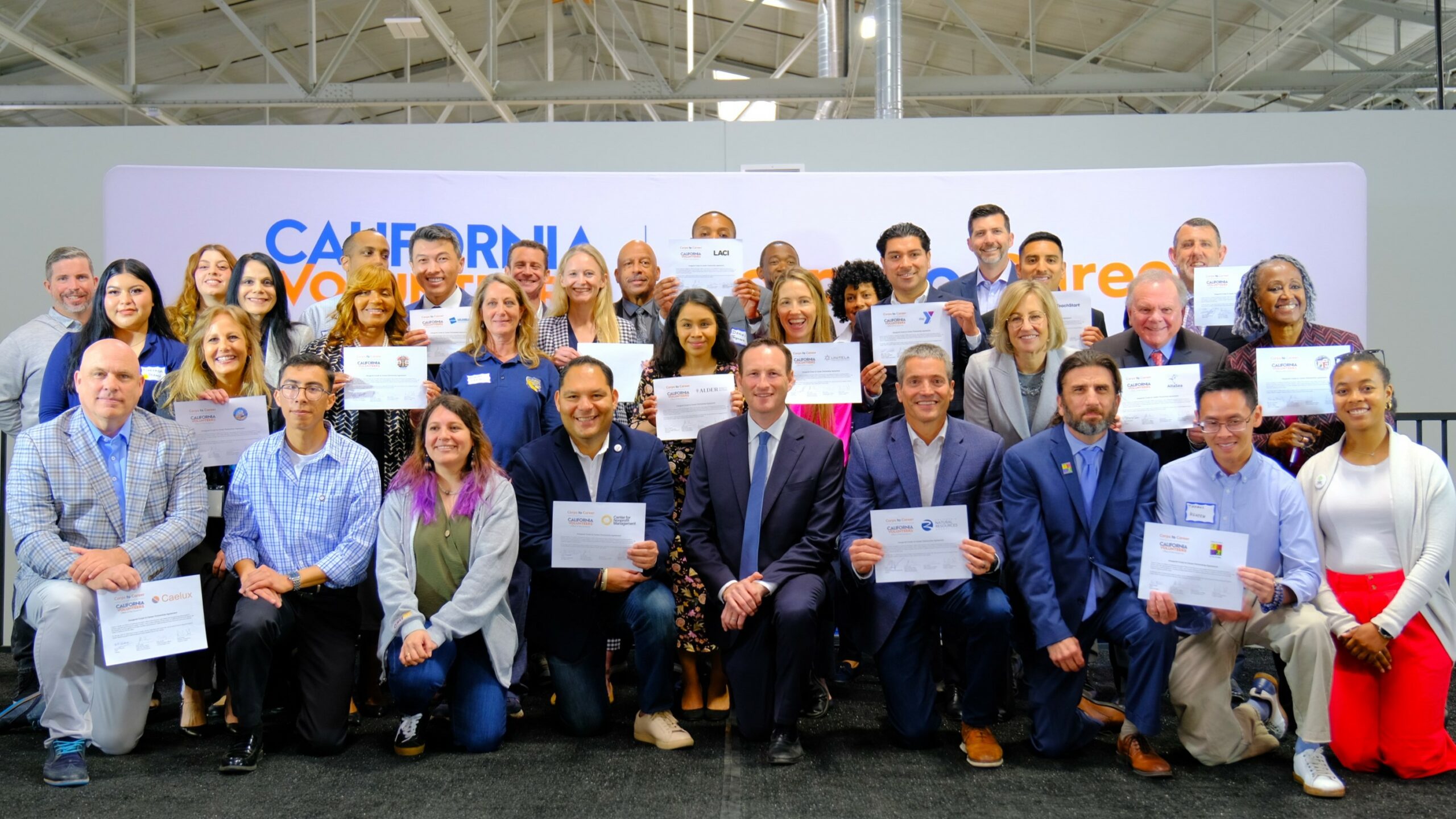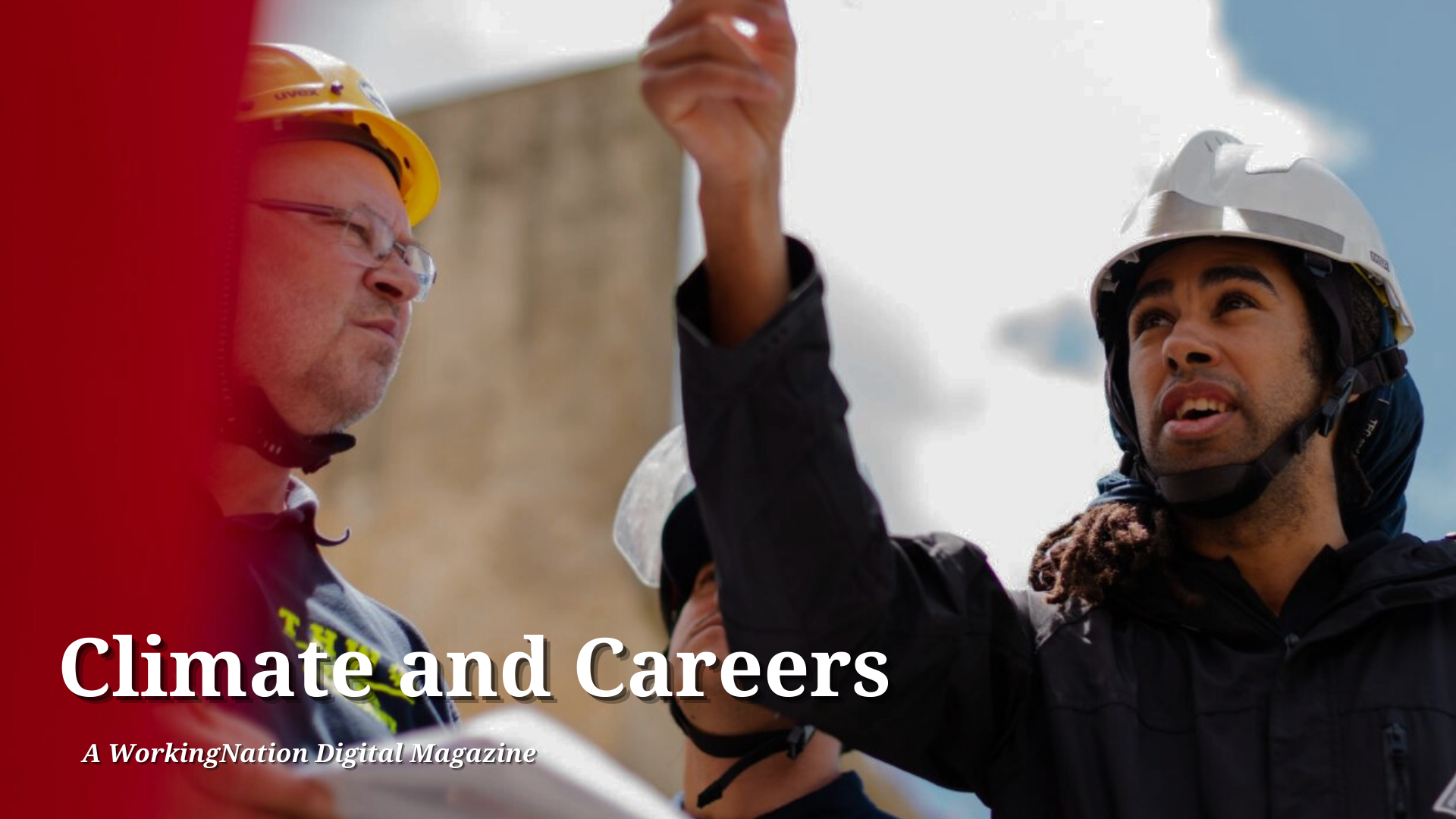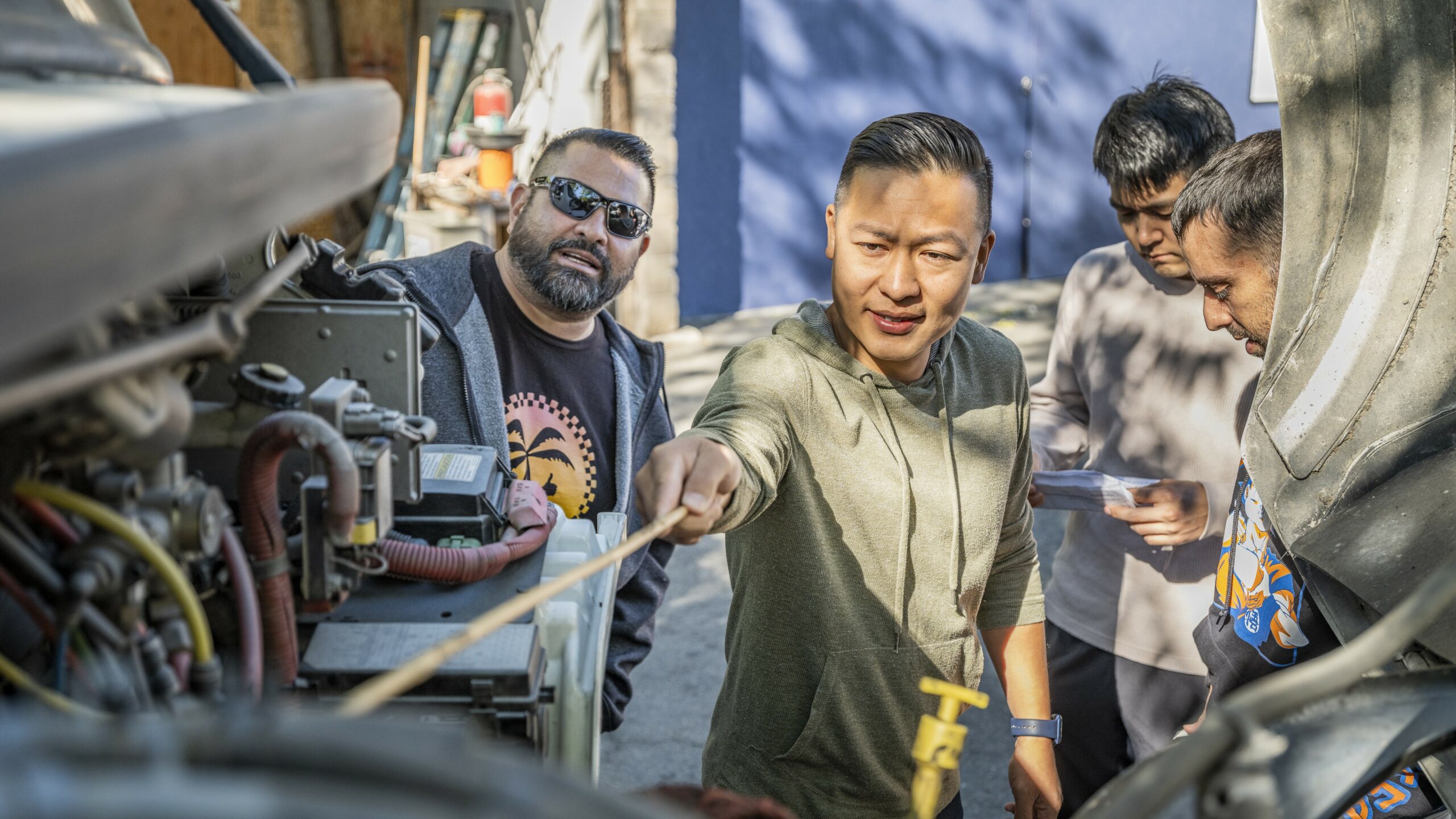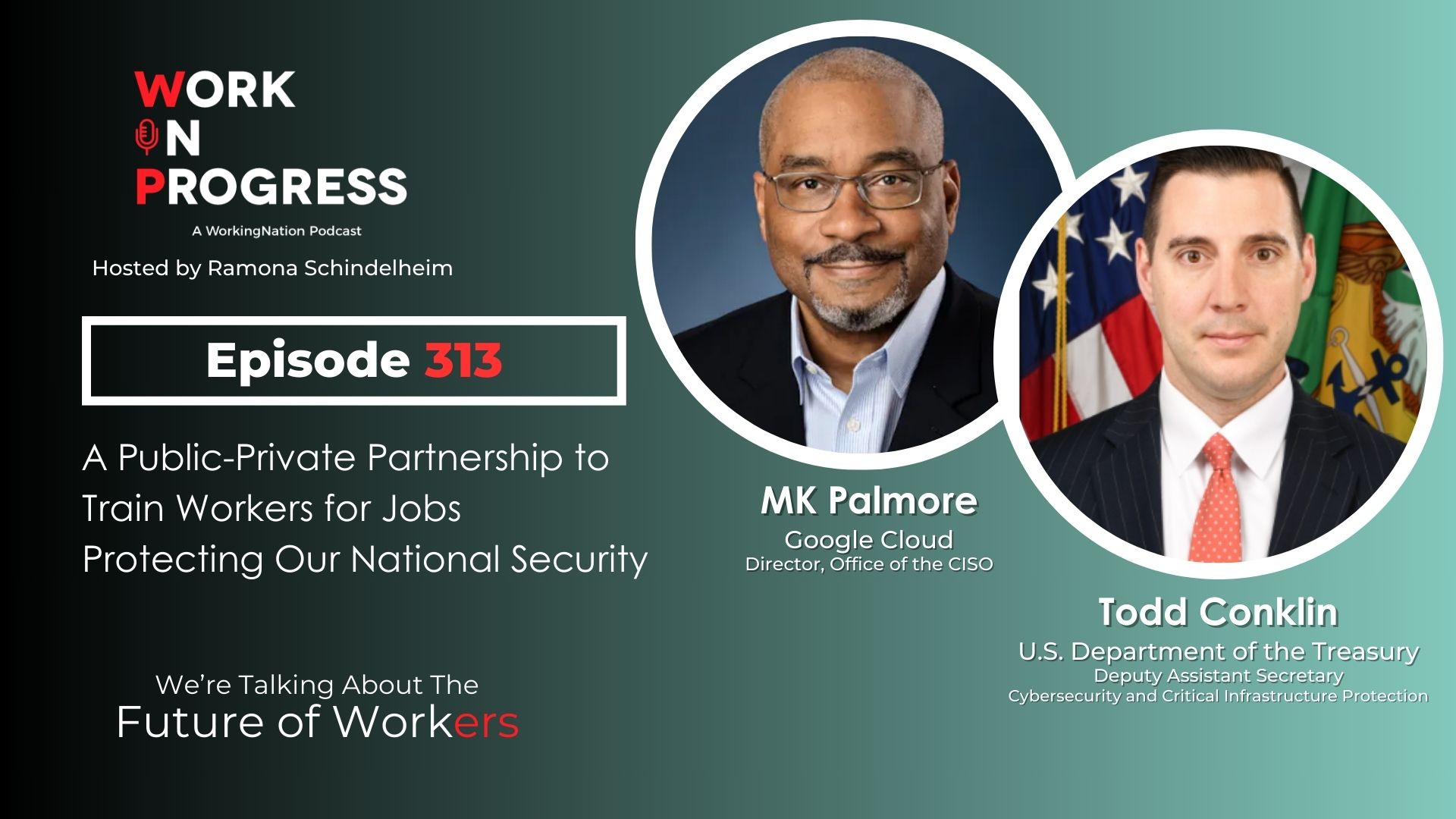“I think philanthropy writ large has a diversity problem,” says Loh-Sze Leung, the co-director of Workforce Matters, a network of philanthropic organizations focused on funding workforce development programs.
Earlier this year, Workforce Matters asked its own members to do some self-reflection on their priorities, practices, and structure, including looking at whether there were racial biases—albeit unintentional—built into the existing funding ecosystem.
The result: A Racial Equity Framework for Workforce Development Funders.
While the report is intended as a framework for funders—in their words—”to set goals and hold ourselves accountable,” they also realize the conversation would be incomplete without input from others in the workforce development community.
#FundWorkforceEquity: What’s Working? What Could Funders Do Better?
On Wednesday, May 26, WorkingNation helped facilitate that important conversation by co-hosting a Twitter chat with Workforce Matters with hundreds of stakeholders taking part—from grantees, field partners, service providers, worker centers, employers, organized labor, policymakers, and other funders.
The hour-long #FundWorkforceEquity event featured a rapid fire exchange of thoughtful, innovative ideas in a Q and A format.
There were so many observations, suggestions, and examples in the Tweet storm. We can’t share them all on this page, so we’re featuring a handful of the responses here to illustrate the scope of the ideas.
What the Workforce Development Community is Saying About Advancing Equity
Kristen Titus, executive director of Cognizant U.S. Foundation—which identifies workforce needs and develops actionable solutions to close the technical skills gap—says equity in the workforce requires more than access to a good job.
A1: At the @CognizantFdn, we know that workforce equity is not only having access to a quality job with benefits, but also access to the education, skills training and support networks necessary to succeed in that job. #FundWorkforceEquity https://t.co/v8GdQNMl1i
— Kristen Titus (@kristentitus) May 26, 2021
The workforce needs to eliminate barriers to inclusion, according to Burning Glass Technologies, an analytics software company.
A1: Workforce equity means there are no barriers in the workplace for anyone, no matter their race, gender, age, or sexual orientation. #FundWorkforceEquity
— Burning Glass (@Burning_Glass) May 26, 2021
Equity must include the immigrant workforce, notes the National Skills Coalition, a nonprofit that advocates for inclusive access to skills training.
A1: Racial equity in workforce development is achieved when race or immigration status no longer determines the likelihood of a participant’s access to a training program or their educational attainment. #FundWorkforceEquity
— National Skills Coalition (@SkillsCoalition) May 26, 2021
Systemic change does not happen overnight, according to the National Fund for Workforce Solutions, which invests in workforce development programs in 30 communities around the country. Change requires time.
A2: Funders who are addressing workforce equity through a systems change lens will create the biggest impact. Equity takes time, it cannot be a on-off grant program. It has to be woven through all workforce investments. #FundWorkforceEquity
— National Fund for Workforce Solutions (@National_Fund) May 26, 2021
Alex Camardelle, Ph.D., is workforce policy director at Joint Center for Political and Economic Studies, an organization that works to improve the socioeconomic status and civic engagement of African Americans. He shares his thoughts on what’s working and what is not.
A2 (2/2): When it comes to #wkdev, funders could still do a better job of supporting provider capacity to prioritize #jobquality. Further, funder hesitancy to invest in anti-racist systems-change at local, state and federal level is still very prevalent #FundWorkforceEquity
— Alex Camardelle, Ph.D. (@AKCamardelle) May 26, 2021
Ángel L. Vélez, a research associate with Corporation for a Skilled Workforce, says funders need to ensure there is internal equity.
A2.2 There needs to be more people of color working as grantmakers. Embedding a racial equity agenda within the grantmaking process is also essential to a racial equity agenda. @skilledwork_org #fundworkforceequity https://t.co/EDwT1TrQjs
— Ángel L. Vélez, PhD Candidate (@angelvelez85) May 26, 2021
The use of artificial intelligence in hiring presents challenges, according to Maria Heidkamp, director of program development at the Heldrich Center for Workforce Development, and an Encore.org Public Voices Fellow.
A3: Barriers include a lack of #qualityjobs with good wages and benefits. Plus #Discrimination based on #age, #gender, #race. New AI-based hiring technologies may compound challenges. #FundWorkforceEquity
— Maria Heidkamp (@MariaHeidkamp) May 26, 2021
Danielle Vetter, senior program officer of rural postsecondary education and workforce training for Ascendium, says the process doesn’t end with training.
#equity work doesn’t end with workforce development organizations – employers need to center equity in THEIR processes, sourcing, and #upskilling efforts to ensure talent has not just access, but opportunity #fundworkforceequity https://t.co/0VFMlSasq2
— Danielle Vetter (@better_vetter) May 26, 2021
The Center for Workforce Inclusion, an organization that helps older, low-income people secure jobs, says this population is often overlooked when it comes to employment.
Q3: Ageism impacts all aspects of economic opportunity for older adults, especially those working to overcome the cumulative impact of a lifetime of systemic racism and sexism. Grantmakers can lead the way to equitable access and support. #FundWorkforceEquity #racialequity
— Center for Workforce Inclusion (@WorkforceINCL) May 26, 2021
Advance CTE, a nonprofit that represents state CTE directors and state leaders of career and technical education, says the pandemic has created significant hardship on learners. The organization tweets funders, policymakers, and educators must address equity issues before launching programs.
Stakeholder engagement is vital to the design of programs of study, learning standards and classroom-based curriculum that prepare vulnerable populations to enter into the workforce. Explore state strategies: https://t.co/uUfRR4B3hi (2/3) #FundWorkforceEquity
— Advance CTE (@CTEWorks) May 26, 2021
Bishara Addison is director of job preparation for Fund Our Economic Future, a funding alliance focused on economic growth and equitable access in northeast Ohio. She notes collaboration with providers and attention to funders’ internal retention are important issues.
A4: Funding orgs to play their role in the ecosystem well. Investing in staff compensation to attract and keep the right talent. Trusting frontline #wkdev professionals, treating them like the experts they are. + flexible funding for provider collaboration. #FundWorkforceEquity
— Bishara W Addison (@BisharaAddison) May 26, 2021
Monica Munn, managing director of philanthropy for WES Mariam Assefa Fund, takes the opportunity to invite participants to engage with the organization.
A4: Speaking of resources, @WorldEdServices is looking for ideas to build more equitable employer practices. We want to meet proximate organizations from #immigrant and #BIPOC communities that center #workers + have a systems mindset https://t.co/OSRPJHYouh #FundWorkforceEquity pic.twitter.com/JCC1nGnAtw
— Monica Munn (@MonicaKMunn) May 26, 2021
Social Finance, a nonprofit organization that mobilizes capital to drive social progress, is expanding a program for people who often face barriers getting into the workforce.
A5 1/2: Our $40-50M #UPFund is scaling a portfolio of #CareerImpactBonds across the country to expand access to career training for people who face barriers to education and employment, whether it’s low income, criminal justice involvement, immigration status #FundWorkforceEquity
— Social Finance (@SocialFinanceUS) May 26, 2021
Results for America, an organization that utilizes evidence and data to help governments determine solutions, shares how consolidating data is streamlining workforce services.
A5: (4/4) Linking #workforce data across 9️⃣ agencies in Virginia to give job seekers a single point of entry for all #workforce services and to build a more #evidence-driven workforce system #FundWorkforceEquity https://t.co/aYqg5YeOXW
— Results for America (@Results4America) May 26, 2021
New Profit is a venture philanthropy organization that supports social entrepreneurs who are advancing equity and opportunity. One of the organization’s initiatives, powered by XPRIZE, MIT Solve, and JFF, forging partnerships to implement solutions.
A5. Through the #FutureOfWork Grand Challenge, we are elevating innovative #wkdev solutions and testing/evaluating in close partnership with workforce development boards and job centers across the country. #FundWorkforceEquity (https://t.co/hhkqOncwlc) https://t.co/m7WJ5LoFwz
— New Profit (@newprofit) May 26, 2021
Just from this small sampling, you can see there’s plenty of innovative thinking to digest in this chat. And it’s not too late to chime in.
Go to Twitter using the hashtag #FundWorkforceEquity. Let’s keep the conversation going.











